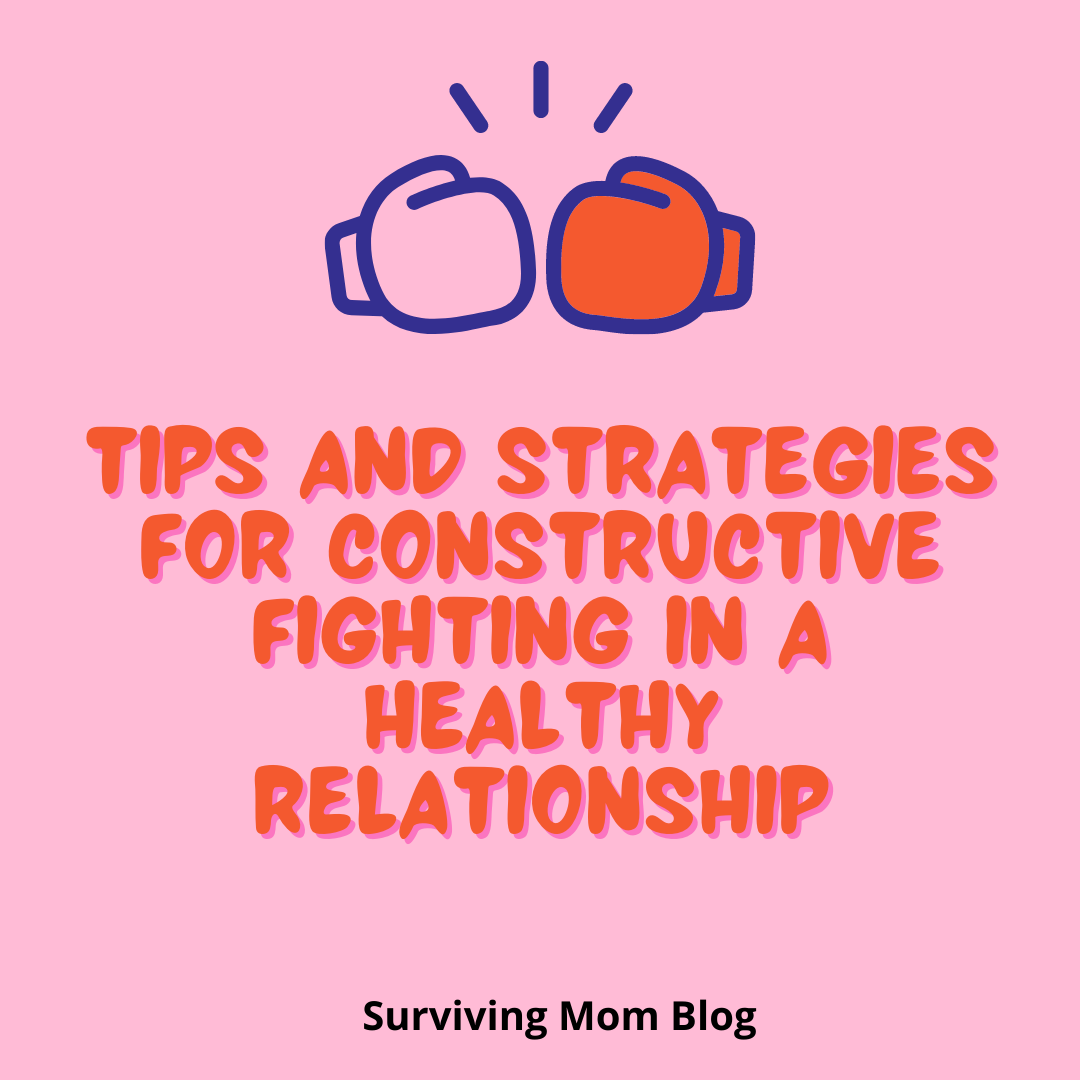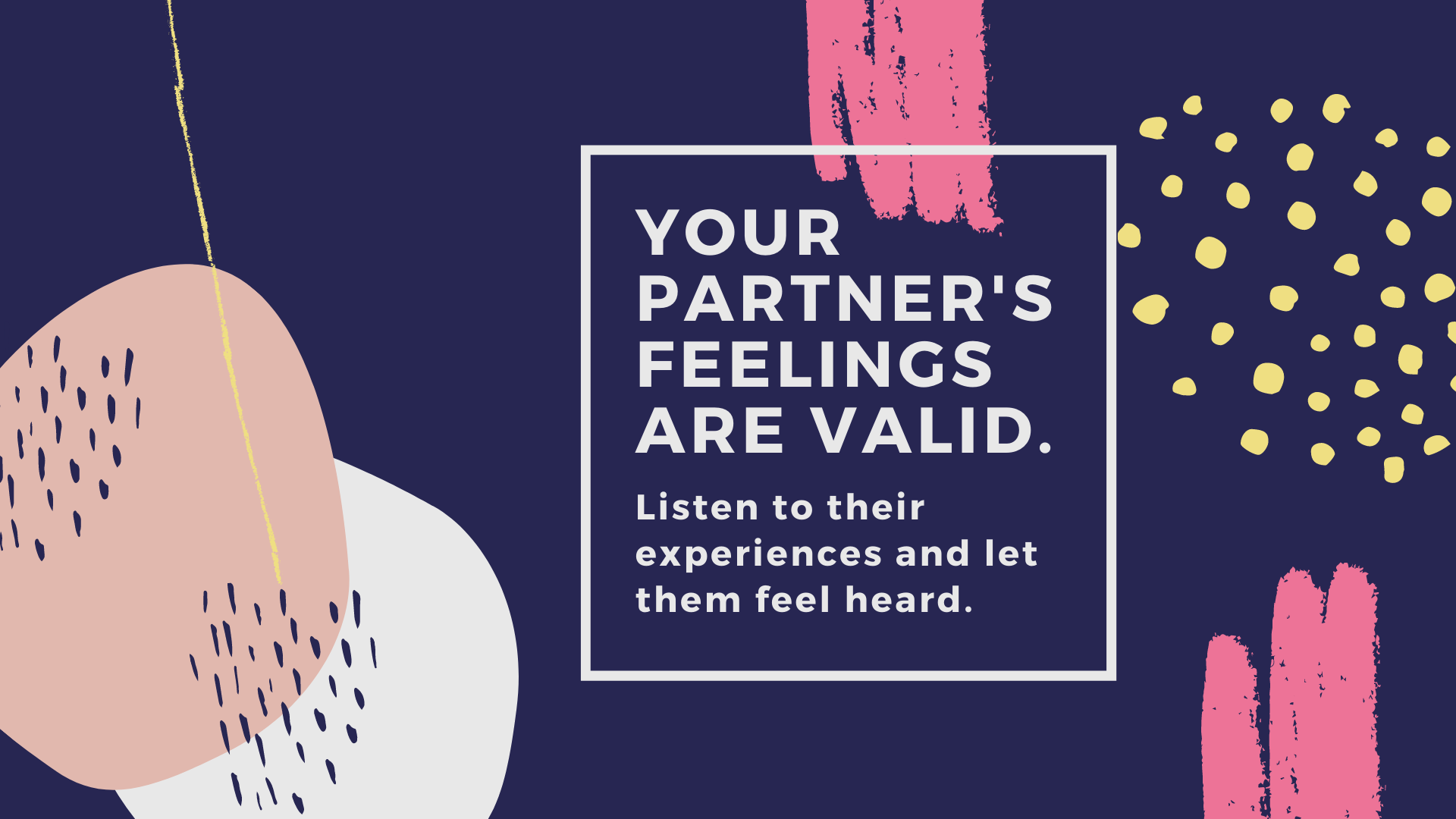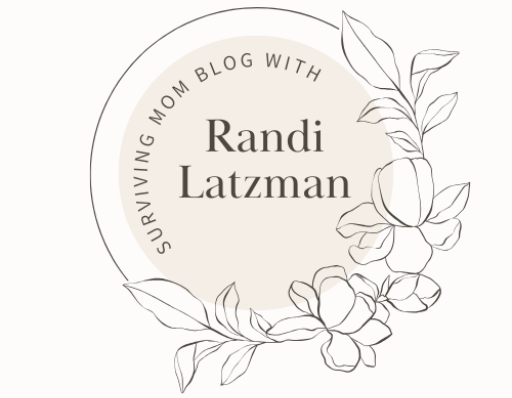
Fights. Conflict. Arguing. Words that make most of us incredibly uncomfortable. However, fighting is inevitable in all relationships. The key is to figure out how to have a healthy fight instead of an unhealthy fight. For purposes of this article, healthy fighting is synonymous with constructive fighting and healthy conflict. If conflict is part of any relationship, it is crucial to learn how to have a healthy fight.
Ways To Have Constructive Conflicts In A Healthy Relationship
(1) Mindfulness and taking a pause
Healthy fighting is about addressing a problem together. Even when two people have strong opinions, the key is learning to respond instead of react. This is a crucial way to fight productively.
I will admit that my husband and I are both hotheads. As a result, what may initially be a simple discussion turns into a trigger-fest, with each one of us reacting to what the other one is saying. Instead of addressing the problem, it turns into a bigger argument.
I know we are not the only ones who often react first and then think later. Luckily, there is a solution that enables healthy fighting between couples. It involves mindfulness. This means paying attention to the physiological reactions going on in your body (blood pressure rising, heart racing, surge of adrenaline) that take place when you start to feel emotionally charged. If you learn to notice those reactions once they start, you can prevent them from going any further.
Practicing pausing before reacting is how couples have a healthy fight. Once you recognize that you are starting to react, STOP. Take a breath. Don’t say a word. Instead, put a hand up to indicate you need a break or determine in advance a signal you will use when you need to stop. Walk away if needed. If you stop as soon as you feel a reaction, it will prevent you from verbally reacting. It will also take less time to calm down. Once you react and fall down the rabbit hole, it is much harder to get out of it.
Mindfulness and pausing is not something that you can learn to do overnight. If you typically react rather than respond, work on listening to your body’s signals and get better equipped at noticing them. Over time, you will be able to take that much needed pause.
(2) Showing empathy and give validation

When you are fighting, are you trying to understand the feelings of your partner? You do not have to have the same opinion as your partner to show empathy. Validating someone’s feelings is a huge part of healthy fighting. Ultimately, each person in a relationship wants to feel heard.
You don’t need to agree with what someone is saying, as long as you can recognize that their way of experiencing things doesn’t have to be the same as yours to make it valid. Ways of validation can be non-verbal, such as leaning forward when the person is speaking, making eye contact, and nodding.
We can each have our own unique feelings. No matter how we feel, those feelings deserve acknowledgment, respect, and validation. When there is a desire to understand your partner’s way of thinking and feeling, this is healthy fighting in a relationship.
(3) Focus on the issue at hand
It is easy to turn one argument into a rehashing of all of your issues in the relationship or with that person. That will only make the argument turn into a blame game. Instead, have healthy conflict by sticking to the particular topic.
(4) Know when to hold them and when to fold them
Sometimes there is not an easy resolution to a problem. If you feel like you are going in circles with no end in sight, put a pin in it. That will give both of you time to think over what the other one was saying, and to try to gain some clarity and additional perspective. Decide in advance when you will revisit this topic so it doesn’t get swept under the rug. Constructive fighting means knowing when to stop before it turns into destructive fighting.
(5) A mutual desire to reach a resolution
Healthy fighting between couples means that both people approach the conflict wanting to repair a problem. Figuring out a solution isn’t as important as each person having a genuine desire to resolve the issue. You may not be able to reach a resolution, but it is a constructive fight if both are approaching it from a healthy mindset.
(6) How you express your feelings
If you talk about your feelings in terms of how YOU are affected by a situation or the other person, that is a much healthier way of fighting. Try to use “I feel” rather than “You did” when fighting. Make it about yourself instead of speaking for the other person or criticizing them.
(7) Wanting to communicate
Healthy relationships understand that fighting is par for the course. It is better to get your feelings out in the open and address your concerns rather than bury your feelings or pretend that everything is okay. Communication is key in every relationship, and it is necessary to communicate even if it will cause a fight. Your partner isn’t a mind-reader, so you need to be upfront and honest about what is on your mind.
Be as specific as you can about your concerns and when brainstorming solutions. Sometimes, there is a pattern to your conflicts. By being as specific as you can about your feelings, you may discover what is the true root of the problem. Open and honest communication in every aspect of the conflict enables constructive and healthy fighting.
(8) Be a team
Conflict between couples is healthy when both people understand that the ultimate goal is to work together. Remember that if one loses, the both of you lose. It is necessary to be a team rather than keep a running tally of who is right and who is wrong.

(9) Give each person time to talk
There are two people in a relationship, and each one is entitled to have a voice when there is a fight. Give each person a chance to speak, and try your best not to interrupt. When one person is finished, then the other person should get the same opportunity to talk. If one person tends to monopolize the conversation, you can determine in advance how much time you each will get and take equal turns speaking. Just as it is important to be a good listener, it is important that you each speak your mind and voice your feelings.
(10) Make Requests
Fighting in a healthy relationship means asking your partner to contribute to a solution or a situation. If you make a request rather than demand or complain, you are approaching the conversation in a productive way.
(11) Ask questions from a curious perspective
When in doubt, ask your partner what they need. If you have any confusion, ask! Ask what will make your partner happy. Ask what they need to feel safe and loved. Lack of proper communication and misunderstanding will cause a conflict to turn into an unhealthy one.
(12) Respect your partner’s boundaries and stick to your own boundaries
When fighting, it is important to stay respectful and honor each other’s boundaries. This could mean setting an alarm because your partner doesn’t want to discuss heated topics after a certain time, or it could means taking a time out for a designated amount of time. Whatever the boundaries may be, discuss these boundaries in advance to ensure that they are implemented on both ends.
Things to Avoid That Can Lead To Destructive Fighting

- Ignoring your partner- checking your phone, looking around or any avoidant behavior are all signs of unhealthy conflict.
- Criticizing, shaming and demeaning behavior- eye rolling, sighing, or verbally belittling your partner.
- Jumping to conclusions- give your partner an opportunity to explain their behavior or circumstances by asking questions rather than throwing accusations.
- Beginning a conversation already triggered. Take time to calm down before you discuss anything.
- Asking questions to prove the other person is wrong. Only ask questions when wanting to genuinely understand the other one and to work together.
- Keeping track of all the things you disagree with while the the other person is speaking.
- Walking away in the middle of a conflict with the intention of not addressing the topic again.
- Dismissing your partner’s feelings or refusing to acknowledge the validity of your partner’s feelings because you don’t agree with them.
- Bringing up topics that cannot be resolved (e.g., took place in the past) or that detracts from the topic at hand.
- Abusive behavior, whether physically violent or verbal.
- Playing the blame game. Nobody wins.
- Bringing up your partner’s deepest secrets and vulnerabilities in the middle of a fight.
- Getting increasingly triggered and continuing the conversation.
- Avoiding a topic altogether because a resolution wasn’t reached.
We are all unique, with our own set of desires, emotions, and opinions. Two different people and perspectives will eventually result in conflict. If people are open to understanding those differences, arguing can be a source of deeper understanding of one another. Learning to fight in a healthy way will allow for a relationship filled with love, no matter the argument.
Disclaimer
This post may contain affiliate links. If you purchase a product via my link I may receive a small commission at no additional cost to you. Please visit our disclaimers here



Naomi P Lane says:
I could really take note of your piece of advice: do not keep track of everything he is saying that you disagree with. This is something I would naturally do because I’m a list-maker by nature. It must be infuriating for him. I am pretty good at taking a long pause, in fact I’m more inclined to put a pin in it altogether and come back, which is not really healthy either if he really wants to hash something out in the moment. Lots of excellent food for thought here.
Randi says:
I’m a list maker by nature too, so that is definitely something I speak of from personal experience. It can be difficult when one person wants to stop and one wants to keep discussing. I’d suggest you come up with a compromise so both your needs get met. What my husband and I do is take a 20-40 minute break depending on how triggered one of us is feeling. If one of us is feeling triggered, anything the other one says isn’t going to be truly heard, so we find it is better to take a brief pause and come back to the conversation. We will only wait to discuss it another day if the conversation is unproductive and we are merely going in circles. I’m glad you enjoyed the post and it gave you food for thought!